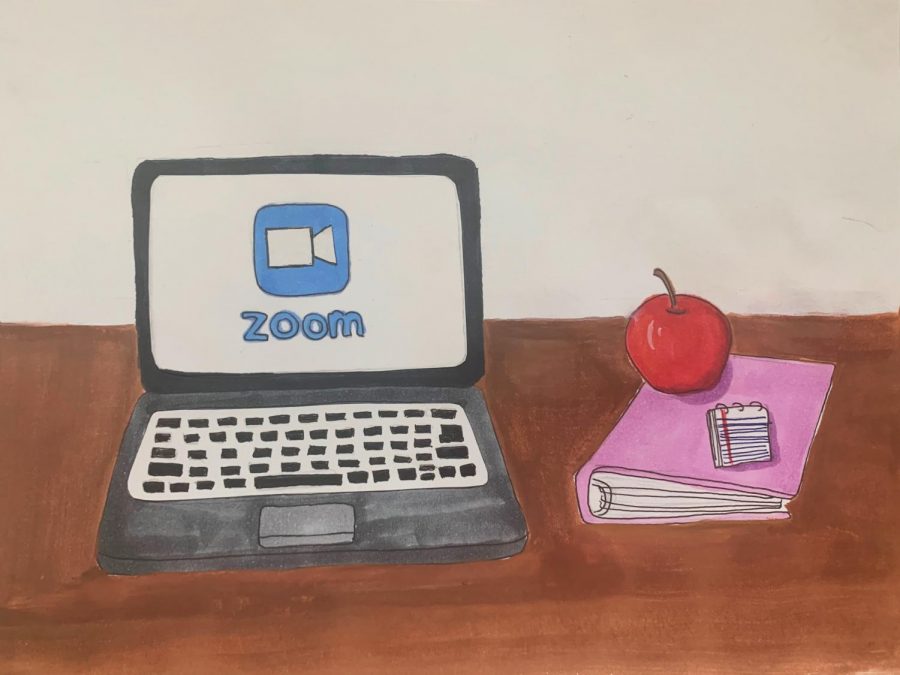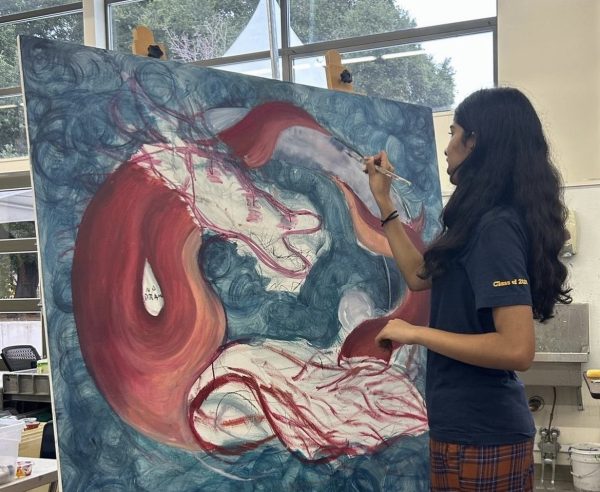Teachers Have Less Control in Students’ Learning Processes
As note-taking and organization methods change with online learning, students must take more initiative in their learning. Staff illustration: Dorinda Xiao.
September 19, 2020
As another school year kicks off online, it brings with it new teaching styles. Teachers who once required written notes, hard copies of homework or binder checks can no longer administer as much control over students, and as a result, students now have more freedom in their learning.
Math teacher Leanne Rouser believes that keeping her students organized is important for their learning. “I myself kept a lot of [control] helping them with their organization skills in terms of keeping things in an organized binder. […] I get so much positive feedback from alumni when they’ve gone to college, so I have always done a lot of that kind of forced organization.”
Similar to Rouser, history teacher Carmen Borbón had strict expectations for her students’ organization during in-person school, such as a table of contents in binders and binder checks. However, with online school, she admits to having less of a say in her students’ study habits. “I realized that I have no control [now],” Borbón said. “I can’t just go to their house and check to see what they’re doing.”
However, as teachers lose control, students gain freedom, which can be beneficial for more independent students. Junior Daniel Louie has found that he has more freedom in his organization online and embraces it. “I see [more freedom] as a positive because it lets students experiment [and] find out what organization style fits them best, rather than being forced to use one approach,” Louie said in an email to The Coat of Arms.
Teachers and students alike have also experienced changes to their note-taking processes, another essential part of learning. Preference to either written or typed notes varies from person to person. Louie, who already took notes on an iPad during in-person school, likes the organizational benefits of online notes. “The transition to online learning actually made it easier for me as I wouldn’t have to take pictures of papers or ask for PDFs of the homework as that’s the new norm,” Louie said.
In contrast, freshman Hinako Karachiwala feels that taking paper notes helps her remember the information better. “Although it’s more efficient to type my notes, the information doesn’t stick with me as much,” Karachiwala said in an email to The Coat of Arms.
Like Karachiwala, junior Amy Wyatt sees the pros and cons of both note taking styles. “While handwritten notes are harder for me in terms of keeping up with the pace of the class, I think they ultimately produce more helpful notes,” Wyatt said.
From another perspective, Borbón encourages students to take hand-written notes as a way to ensure they are paying attention. “Sometimes, they were actually doing other things [while seemingly writing digital notes] like shopping or, you know, playing games,” Borbón said.














